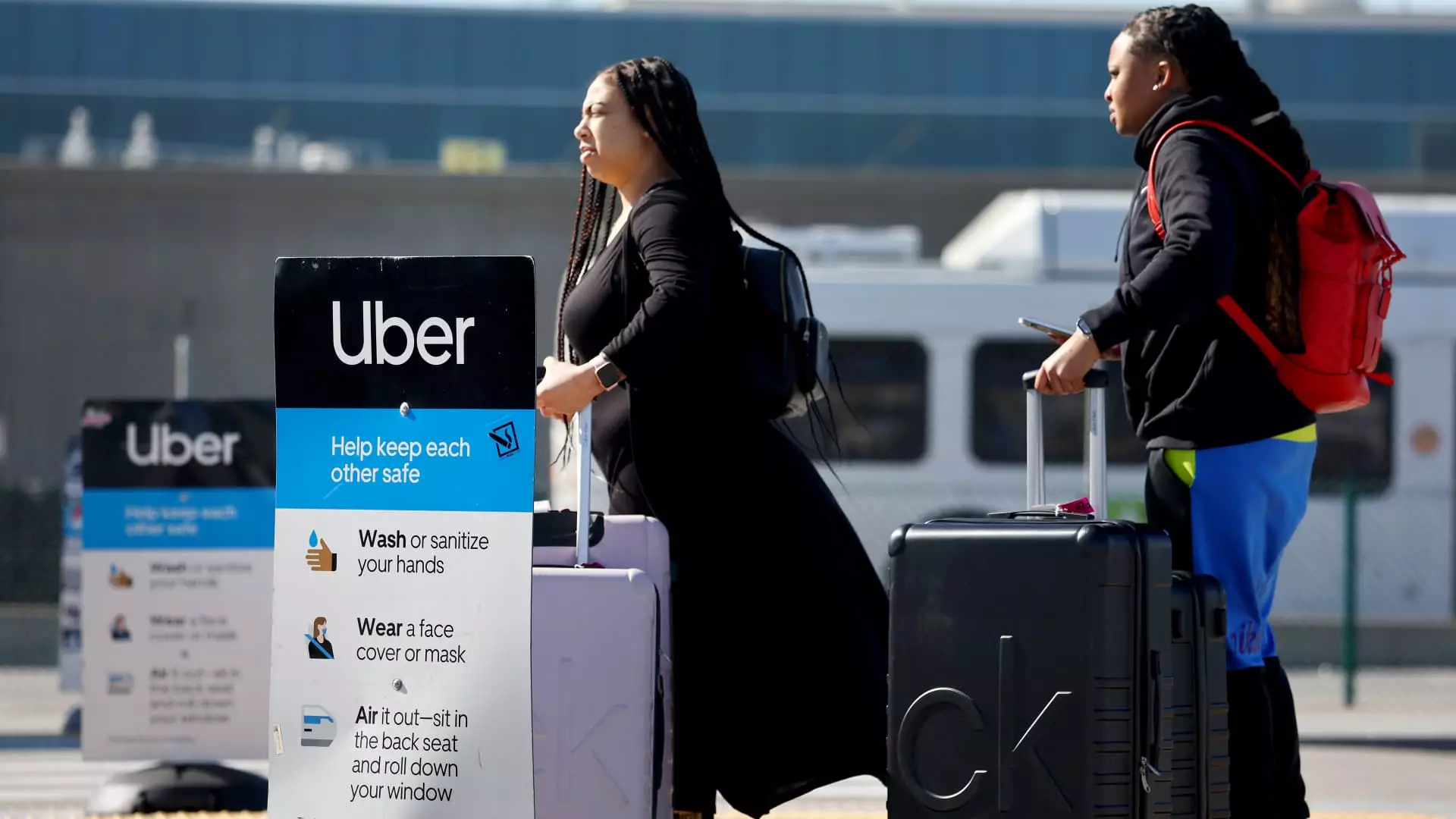In a strategic move announced this spring, Delta Air Lines has decided to pivot its loyalty program, SkyMiles, towards a new partnership with Uber. This shift marks the end of an eight-year collaboration with Lyft, Delta’s previous ride-hailing partner. It underscores the airline’s intent to enhance the customer experience and leverage technological advancements in the travel sector. By aligning with Uber, Delta aims not just to reward its customers but also to streamline the entire travel process, making journeys more economical and convenient.
With the integration of Uber into the SkyMiles program, customers can link their Delta accounts to their Uber profiles. This linkage enables SkyMiles members to earn rewards based on their spending with Uber. For instance, riders can earn one mile for every dollar spent on basic UberX airport rides, escalate that to two miles for premium services like Uber Comfort and Uber Black, and enjoy three miles per dollar for Uber Reserve trips. Additionally, the partnership extends to Uber Eats, where customers can accumulate miles from food deliveries when their orders exceed $40. This comprehensive earning structure positions the Delta-SkyMiles-Uber trio to cater to both air travel and the broader needs of consumers.
Delta Air Lines is part of a broader trend among airlines to cultivate partnerships that enrich their loyalty programs. This strategy serves as a significant revenue stream by encouraging customer retention through diverse channels. Other notable partners in Delta’s network include Starbucks and Hertz, showcasing an effort to create a holistic experience for travelers. The loyalty program has enormous financial implications, with Delta’s partnerships estimated to generate billions in revenue; a testimony to Delta’s focus on innovation and customer satisfaction.
The decision to terminate the relationship with Lyft raises questions, particularly since Lyft reported substantial growth, boasting 24.4 million active riders in recent months. Nevertheless, the shift seems driven by a desire to capitalize on Uber’s larger market presence, which reported an impressive 161 million active users and over 2.8 billion rides in a recent quarter. This disparity emphasizes the scale at which Uber operates compared to Lyft, and perhaps suggests a strategic calculus that led Delta to prioritize this more prominent player in the industry.
For customers who previously enjoyed earning miles through Lyft, Delta has indicated that there will be a grace period until April 7 for them to collect miles from linked Lyft accounts. This transitional phase is essential for ensuring that loyal customers understand the changes and remain engaged with the SkyMiles program. Delta promises direct communication regarding this shift, highlighting the airline’s commitment to maintaining transparency with its customer base.
Lyft, too, has expressed its intent to evolve beyond its previous contract with Delta. The company continues to pursue partnerships with other major brands, indicating a focus on expanding its clientele and creating a more diverse service offering, including collaborations with companies like Alaska Airlines and Hilton. This adaptability is crucial for Lyft as it navigates the competitive ride-hailing landscape following the end of its partnership with Delta.
Delta’s partnership with Uber goes beyond mere point accumulation; it symbolizes a broader shift in the transportation and hospitality industries. As consumer expectations evolve, the demand for seamless integration among services continues to grow. The combination of air travel with ride-hailing services allows customers to have a more holistic travel experience, thereby reinforcing brand loyalty.
Delta’s presentation of this partnership at the CES tech show in Las Vegas, where they also announced advancements in artificial intelligence within their app, further emphasizes their commitment towards innovation and enhancing customer interactions. As travel trends shift, particularly in the post-pandemic landscape, this partnership could represent a timely response to ensure customers have efficient and rewarding travel experiences.
Delta Air Lines’ alignment with Uber not only paves the way for increased customer engagement through the SkyMiles program but also sets a precedent for future collaborations within the airline industry. As the travel sector continues to modernize, partnerships like these exemplify how airlines are striving to adapt to evolving consumer preferences and technological advancements, showing that convenience and loyalty can go hand in hand.


Leave a Reply